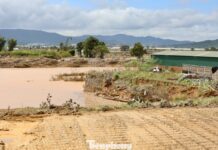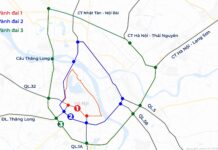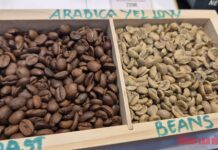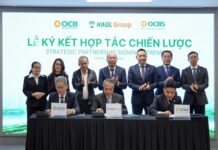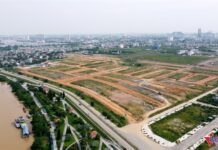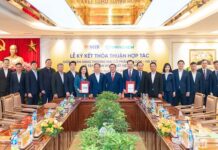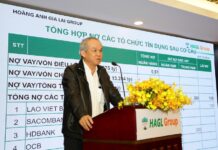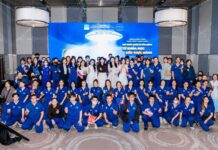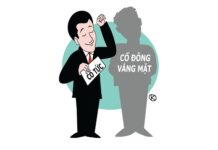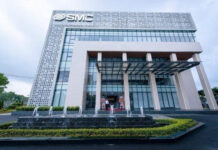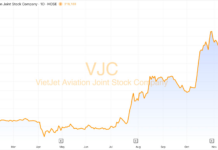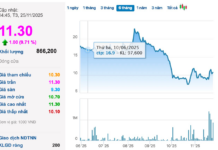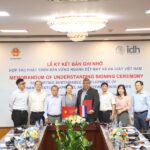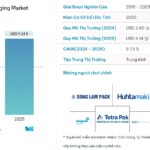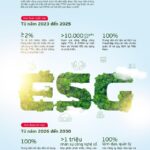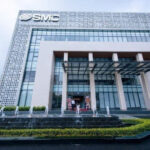Thanh Hoa province aims to effectively implement the National Strategy for Green Growth for the period of 2021-2030, with a vision towards 2050. The province focuses on fast and sustainable socio-economic development, primarily through economic restructuring associated with a growth model innovation. This includes promoting green industries, efficient and economical energy use, and aspiring towards a green, carbon-neutral economy, thus contributing to the goal of limiting the global temperature rise.
To materialize this objective, Thanh Hoa has been employing mechanisms and policies for land accumulation and concentration, as well as agricultural and rural development policies, to support, establish, and advance efficient and sustainable organic farming models. Concurrently, the province encourages organizations and individuals to invest in infrastructure development and promote the processing and consumption of safe and organic agricultural products through value chains.
Consequently, this facilitates farmers in expanding their production of safe agricultural goods. In recent years, numerous households and cooperatives in Thanh Hoa have opted for organic and eco-friendly farming practices, resulting in products that are safe for both the environment and consumers’ health. This is also a crucial condition for the sustainable development of agricultural economics.
Hence, the trend of green and safe agricultural production has been vigorously developing across all domains of cultivation, animal husbandry, and aquaculture in the locality. Presently, Thanh Hoa province boasts over 200 hectares of greenhouse and plastic house technology for vegetable, fruit, and flower cultivation; nearly 2,500 hectares of agricultural production meeting VietGAP standards; 13.6 hectares with organic certification; and approximately 5,100 hectares of production oriented towards organic methods. Throughout the production process, the entities rigorously adhere to the requirements of the applicable standards, selecting organic fertilizers and microbial pesticides for crop care.

A visit to Mr. Vu Van Chien’s organic grapefruit farm in Ngoc Phung commune, Thuong Xuan district, reveals that to enhance product quality and meet the stringent market demands, the farm has invested in a modern drip irrigation system and exclusively uses organic fertilizers and biological preparations, ensuring product traceability. As a result, Ngoc Phung grapefruits are not only delicious and refreshing but also safe for consumers’ health.
“Instead of using chemical fertilizers and pesticides, I utilized readily available resources on the farm, such as fish by-products, livestock waste, and fallen grapefruits, to create nutrient-rich organic fertilizers. The composting process is meticulous and combined with a modern drip irrigation system, ensuring sufficient nutrient supply for the healthy growth of the grapefruits. Notably, raising geese and chickens under the grapefruit canopy helps control weeds and creates a balanced ecosystem, reducing the need for herbicide use. By strictly adhering to the organic production process, my Dien grapefruits not only excel in quality but also provide absolute peace of mind to consumers,” shared Mr. Vu Van Chien, the farm owner.
Another exemplary model is the organic grape cultivation in Xuan Du commune, Nhu Thanh district, which has attracted significant attention from both local and nationwide communities. By introducing special grape varieties such as Korean milk grapes and Japanese Kyoho grapes to the soil of Xuan Du, this model has initiated a new wave in the locality’s agriculture sector.
According to Mr. Luong Hong Sy, Head of the Agriculture Department of Nhu Thanh district, for green agriculture to be truly sustainable and contribute to socio-economic development, a holistic collaboration from multiple parties is essential. Apart from raising awareness and transforming farmers’ practices, the authorities need to facilitate a more conducive environment for businesses to invest in agriculture, establish production linkages, transfer modern technology, and train high-quality human resources.
Additionally, developing large-scale production areas, building robust product brands, and expanding consumption markets are imperative solutions. Strengthening farmer organizations, enhancing international cooperation, and promoting agricultural tourism also play pivotal roles in propelling the sustainable development of green agriculture.
Moreover, smallholder farmers encounter difficulties in accessing capital, technology, and markets. The inadequate investment in building an organic product collection and processing system further complicates the consumption of these products.
“Empowering the Sustainable Evolution of the Textile and Footwear Industries”
The Memorandum of Understanding between the Ministry of Industry and Trade and IDH on supporting the sustainable development of Vietnam’s textile and footwear industries will enhance the competitiveness of domestic textile and footwear enterprises. It will also contribute to Vietnam’s international commitments on sustainable development and climate change in the coming years.
Sustainable Investing: A Global Trend, Not a Passing Fad
“Sustainable investing has become a hot topic as it ushers in a new era of environmental consciousness and a ‘new playing field’ for businesses and investors alike. This was emphasized by journalist Kim Hanh, who shed light on the importance of this paradigm shift and how it is changing the landscape of the business world.”
The Art of the Dual Transformation: Insights from the Business Arena
The synergy between digital and green transformation is undeniable, and when these two forces combine, they create a powerful momentum for change. The dual transformation journey presents a unique set of challenges and opportunities for businesses, even those at the forefront. These challenges are not mere obstacles but catalysts for growth and development. While the cost of this dual transition is significant, the price of falling behind is far greater.

